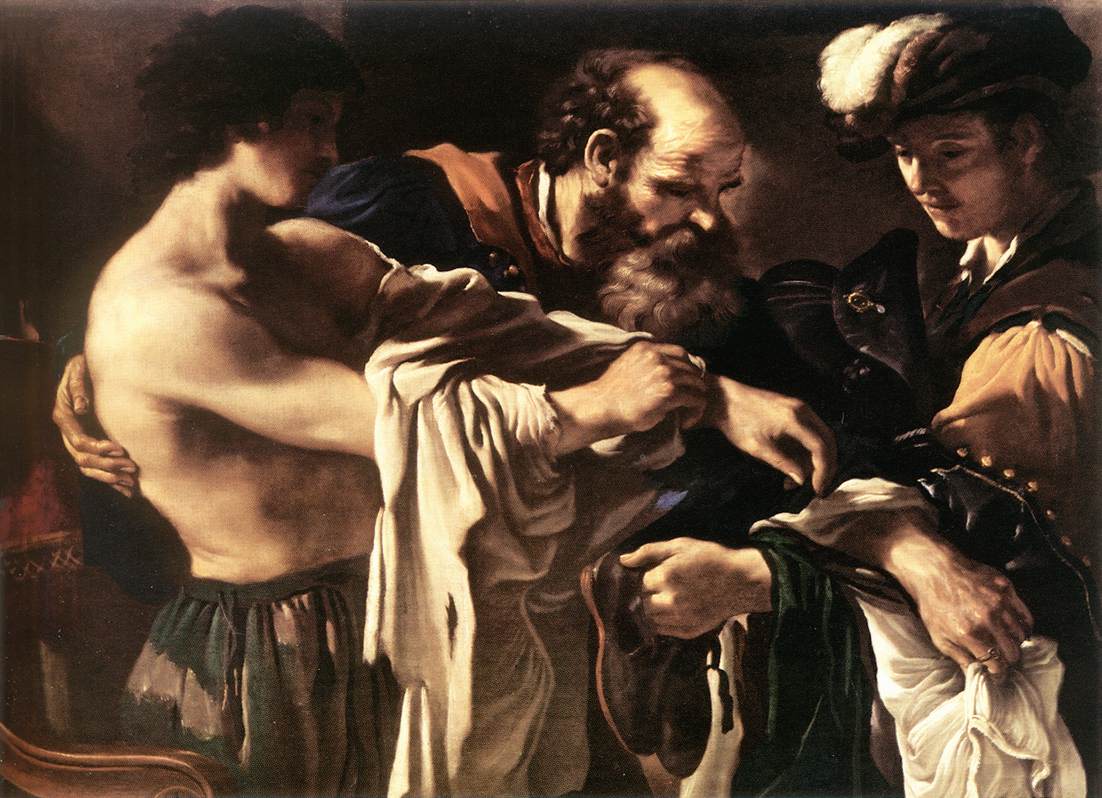Description
The painting Return of the Prodigal Son by the artist Gierro is a masterpiece of religious art from the 17th century. Measuring 107 x 144 cm, this large painting depicts the biblical story of the prodigal son who returns home after squandering his fortune. The painting is one of Gierro's best-known works and has been the subject of numerous studies and analysis.
The artistic style of the painting is baroque, characterized by the exaggeration of forms and the intensity of light and shadow. The composition of the painting is very careful and balanced, with the prodigal son at the center of the scene, surrounded by his father and older brother. The figure of the prodigal son is represented with great realism and expressiveness, while the figures of the father and the older brother are more static and formal.
The paint color is rich and vibrant, with a palette of warm, earthy tones that reflect the setting of the biblical story. The use of light and shadow is very effective, creating drama and emotional depth in the scene.
The history of the painting is interesting, as it was commissioned by the Jesuit Order for their church in Antwerp, Belgium. The painting was completed in 1669 and became one of the most popular works in the church. The painting was stolen twice, once in 1990 and once in 1994, but it was recovered both times and is currently in the Museo del Prado in Madrid, Spain.
A little known aspect of the painting is that Gierro used his own face as a model for the figure of the prodigal son. It is also said that the figure of the older brother was inspired by Gierro's own brother.
In short, the painting Return of the Prodigal Son by the artist Gierro is a masterpiece of 17th century religious art, with a baroque artistic style, careful composition, rich and vibrant color, and an interesting and little-known story. This painting remains one of the most popular and admired works in the Prado Museum in Madrid.

